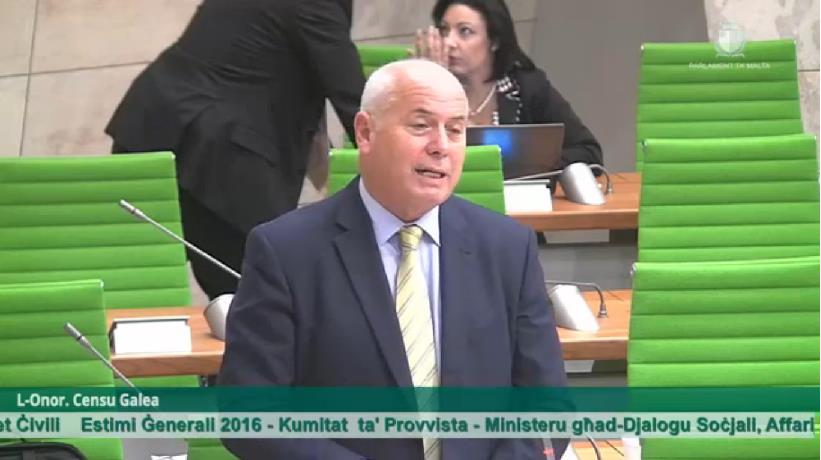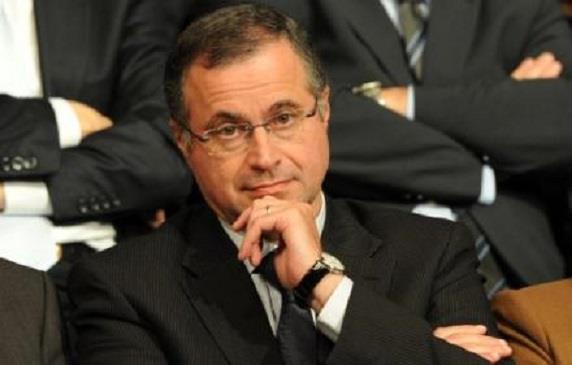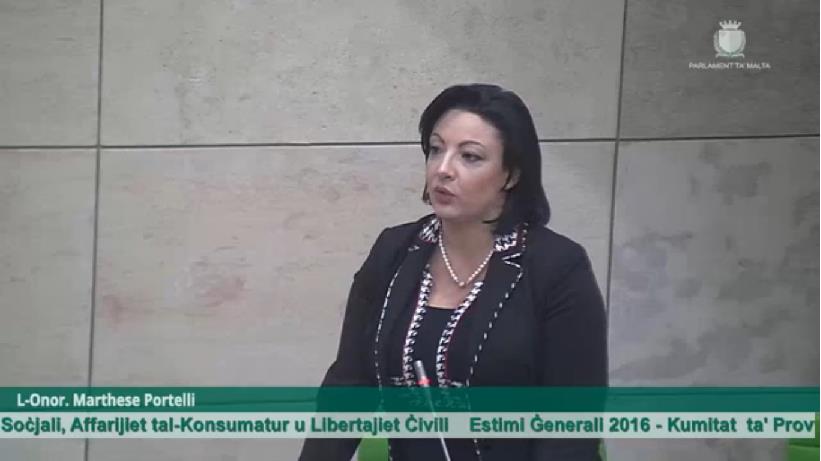Nationalist MP Clyde Puli this morning said that the prohibition of garments covering a person's face, such as the burqa, should come into effect immediately.
Speaking in parliament this morning during a budget debate on social dialogue, consumer affairs and civil liberties, Mr Puli said that there have been public discussions focused on the use of the burqa and other clothing that covers the face of a person. Many discussions took place on various platforms such as social media, which showed that many were concerned over the law which is not clear enough on this issue.
People are genuinely concerned about security because of the anonymity that comes with wearing such a garment, he added.
Objections to wearing the burqa do not stem from religious intolerance or racial issues, but are genuine concerns with regard to safety, said Mr Puli. These are totally separate issues, he continued.
With the exception of certain circumstances, one cannot cover his/her face in public, therefore the law should apply to everybody equally, Mr Puli said.
In Malta it is illegal to drive with tinted windows due safety issues, he added, and the same should apply in the case of burqas.
Equality should apply to all women; the covering up of one’s face limits and restricts a person’s freedom, he said. Certain women choose to wear the burqa, but for many women it is imposed on them culturally, he added. When we talk of impositions, this can come from a legal basis or from a cultural basis, however it is not compatible with our civil liberties, Mr Puli said.

Nationalist MP Censu Galea
Nationalist MP Censu Galea called for better health and safety standards at the workplace, specifically with regard to construction sites in the parliamentary debate this morning.
He also called for an increase of persons certified to determine the appropriate safety standards on construction sites, so as to avoid future accidents at the workplace. He said that the onus was on the government in pushing the strengthening of health and safety standards at the workplace.
Mr Galea discussed the need for entities such as the BICC and the BRO to collaborate and work together, and said that it did not make sense for two entities who work within the same industry to work separately. He said that the way the system has developed does not provide for maximum efficiency, and collaboration would work towards higher safety standards.
The Organisation for Health and Safety should also work in collaboration with the BICC and the BRO said Mr Galea. He highlighted the fact that there have been less accidents at the workplace, however he said that he wishes to see a situation where inspections and standards are carried out to the extent that there are no more workplace accidents.
He also made special reference the issues surrounding integration, stating that in a situation where people from all over the world are coming from Malta, the ensuring of full and positive integration is integral to Malta's future.

Addressing Parliament, Nationalist MP Carmelo Mifsud Bonnici hit out at the whistleblowers’ act, stating it has become a tool for political corruption.
He also spoke of the importance trade unions have in today’s society, stating that strong and effective trade unions give a solid voice to workers.
Dr Mifsud Bonnici mentioned the highly controversial issues surrounding precarious work, stating that most people who are vulnerable to this type of work tend to be part-time workers.
He said that the battle against precarious work has not been made better or worse by the current administration; however government must provide the tools so that people may eject themselves from this line of work.

Shadow Minister for Environment, Energy and Transport Marthese Portelli stressed the need to strengthen health and safety measures at the workplace.
She made reference to the OHSA, stating that it is obliged to ensure a level of health and safety at the workplace, and due to the nature of this obligation, work must always be carried out to ensure the highest standards.
Dr Portelli made a number of suggestions for the betterment of health and safety standards at the workplace, such as making sure that workers know their rights, and how to act when their rights are breached.
She also said that health and safety measures are another cost to employers, therefore the OHSA must make sure that employers find it relatively simple to come in line with the law.
OHSA should follow international standards, even internally, she continued. Dr Portelli stressed the need to constantly revisit the practices of the OHSA, so that it remains as efficient and relevant as possible.
Dr Portelli said that the OHSA has several functions, such as acting as a regulator, enforceing the law and offering educational prigrammes. She said that government must view the entity’s functions separately, and not as a whole.
She went on to say that the health and safety courses offered by the OHSA should be acknowledged and accredited, as they are of paramount importance in strengthening health and safety standards throughout the country. She said that if other entities were to offer such courses, they must be properly qualified and credited to do so.
Dr Portelli concluded by focusing on the link between traffic, and health and safety. She said that government must manage risks not only to drivers and passengers, but also to pedestrians. If Malta got injected with a dose of prudence on the roads, then frustration, road-rage and accidents would all decrease, she added.
She concluded by stressing the need for more traffic enforcement officers, stating that they must be trained in the area and untrained enforcement officers does not cut it.